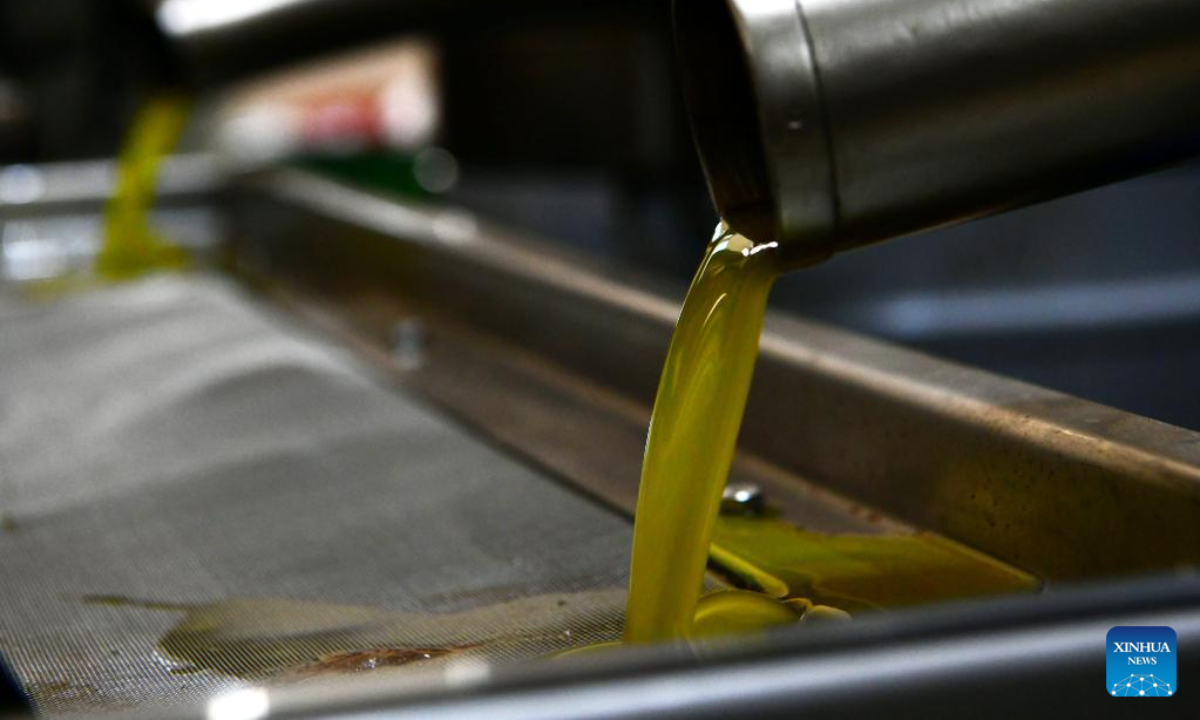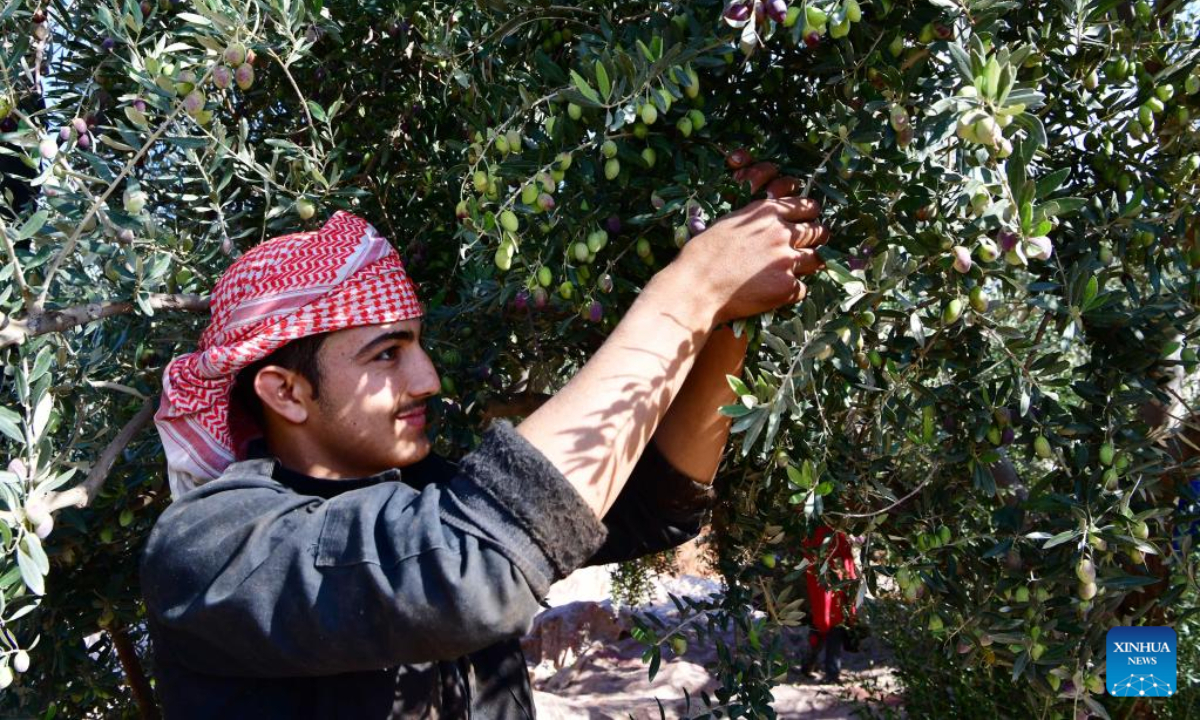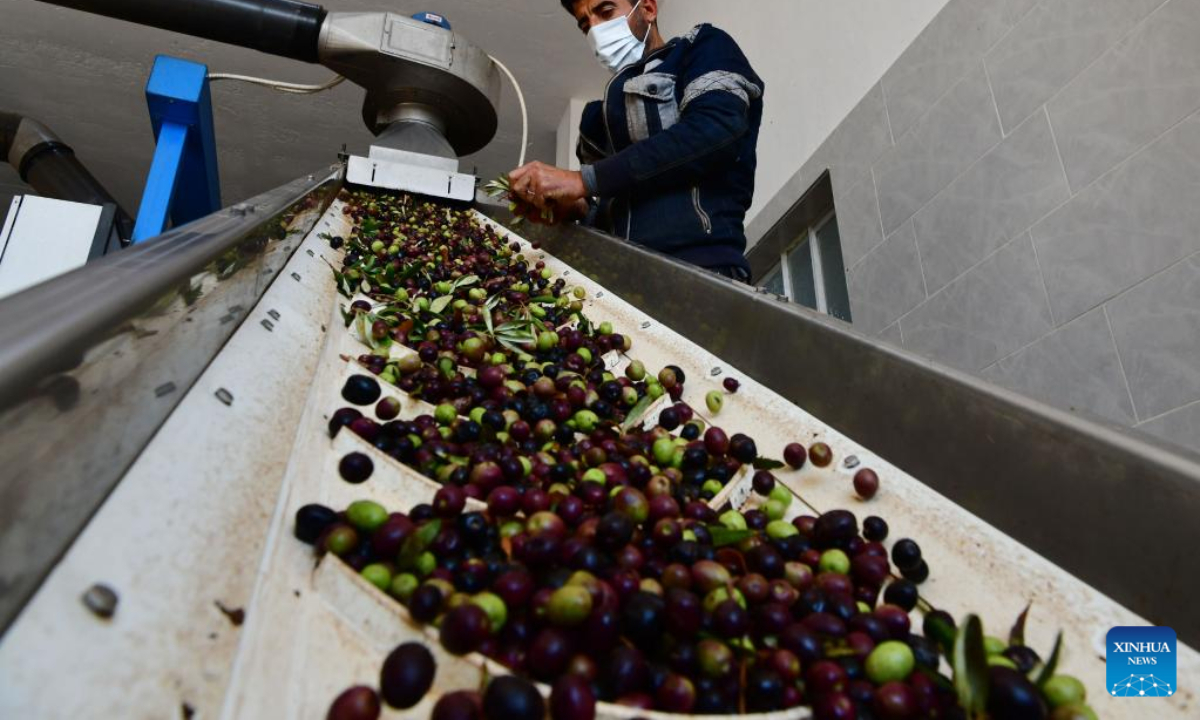Syria's famed olive oil on track to claw back global stature amid war, sanctions: official

Olive oil flows out of pipes at an oil factory in Hama, Syria, Nov 17, 2022. Photo:Xinhua

A farmer picks olives in an olive grove in Hama, Syria, Nov 17, 2022. Photo:Xinhua

A worker operates a machine to produce olive oil at an oil factory in Hama, Syria, Nov 17, 2022. Photo:Xinhua
After a steep decline in production amid long years of war and U.S.-led Western sanctions, Syria's renowned olive oil industry is witnessing a better-than-expected harvest of the highly valued crop in 2022, taking it one step closer to clawing back its global stature, a Syrian agricultural official told Xinhua in a recent interview.
The olive production in Syria this year is estimated at 820,000 tonnes, 15 percent of which is going to be consumed as food, while more will be pressed to produce olive oil, said Abeer Jawhar, head of the olive office at the Syrian agriculture ministry.
Consequently, the olive oil production this year is expected to surge to 125,000 tonnes from last year's 80,000 tonnes, big enough for export after covering the local consumption needs, Jawhar told Xinhua at her office in the central city of Hama.
Still, the olive oil production is far away from the pre-war level of 198,000 tonnes, she noted.
Syria's olive oil had been able to reach countries around the world until a civil war broke out in 2011, because the full sanctions imposed by the United States and its Western allies during the already more than 11-year-old war have affected the export of almost all Syrian products, including oilve oil, according to Jawhar.
The sanctions made it difficult for Syria to import fertilizers, pesticides and other necessities for farming, contributing to the increase in the production cost, she explained.
Syria was the fourth largest olive oil producer in the world in around 2005, only behind Spain, Italy and Greece. In 2018, the Arab country fell to the seventh because of the war and Western economic sanctions.
Now with the growing harvest of olive, Jawhar hoped that the Syrian olive oil could reach as many countries as possible this year to "fit its historic stature in Syria which is considered the cradle of this blessed tree."
Around 103 million olive trees, 90 million of them fruitful, are planted in Syria, covering an area of 696,000 hectares, Jawhar told Xinhua.
"The olive tree makes up 65 percent of the fruitful trees in Syria," she noted.
